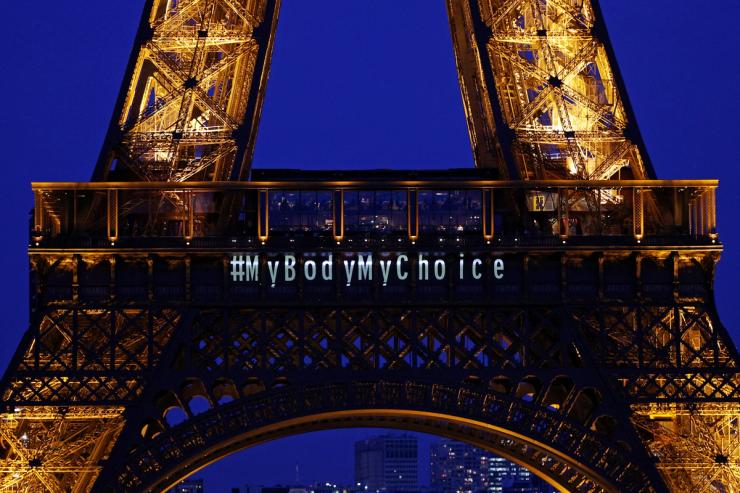The News
France voted to enshrine abortion rights in its constitution Monday, becoming the first country in the world to offer full protection for terminating a pregnancy in its basic law.
Members of both the lower and upper houses of parliament gathered at the Palace of Versailles in southwest Paris, where a supermajority of 780 to 72 voted in favor of the amendment, which states that an individual has a “guaranteed freedom” to abortion in France.
Efforts to pass the landmark law began in response to the U.S. Supreme Court’s decision to overturn Roe v. Wade in 2022, and the Monday vote was the final step in sealing the legislative process.
Before the landmark vote, French Prime Minister Gabriel Attal said that lawmakers had a “moral debt” to women who previously had to undergo illegal and potentially life-threatening abortions.
“Above all, we’re sending a message to all women: your body belongs to you,” he said.
In a post on X, French President Emmanuel Macron said that his government would arrange a formal celebration of the amendment on Friday, International Women’s Day.
SIGNALS
Historic move challenges France’s traditionally male-dominated constitution
Constitutional experts who spoke with The New York Times say that the amendment is historic because it pushes the boundaries of France’s constitution, which typically includes laws written by men, for men. “It’s a big milestone, because it goes to the very foundation of this idea that constitutions were about men’s autonomy,” an author of a book on gender and constitutions told the Times, adding that the stereotypical role of women being “breeders and caretakers” was not hinted at in the text and that their choice was “simply assumed as part of this modern society.”
Sexism remains prevalent in French society – in particular among the young
Despite the abortion bill’s progressive slant, a report from France’s gender equality watchdog published in January shows that sexism is “entrenched, or even increasing” in French society, Le Monde reported. Researchers said that responses were reminiscent of the 1960s, with 60% of women of all ages saying “they must be discreet to fit in with what society expects of them.”
The president of the French High Council for Equality between Women and Men told the newspaper that sexism among the 25-34 age group is of most concern and that “a regressive trend” among women conforming towards traditional roles is prevalent. The president added that inequality starts at French schools, where “gendered behaviors towards students are perpetuated,” and has pushed for the government to roll out an educational program to promote equality.
Ahead of the Oscars later this month, French actress Judith Godrèche spoke at a French Senate commission last week, where she urged French lawmakers to launch an independent inquiry into sexism in the French film industry, recalling her experiences of being sexually abused by two French directors since she was a teen. “I am speaking as loud as I can and trying to push the door as open as possible, and yet nothing is really happening because of the way the system is being built for years and years,” she told the Associated Press.



